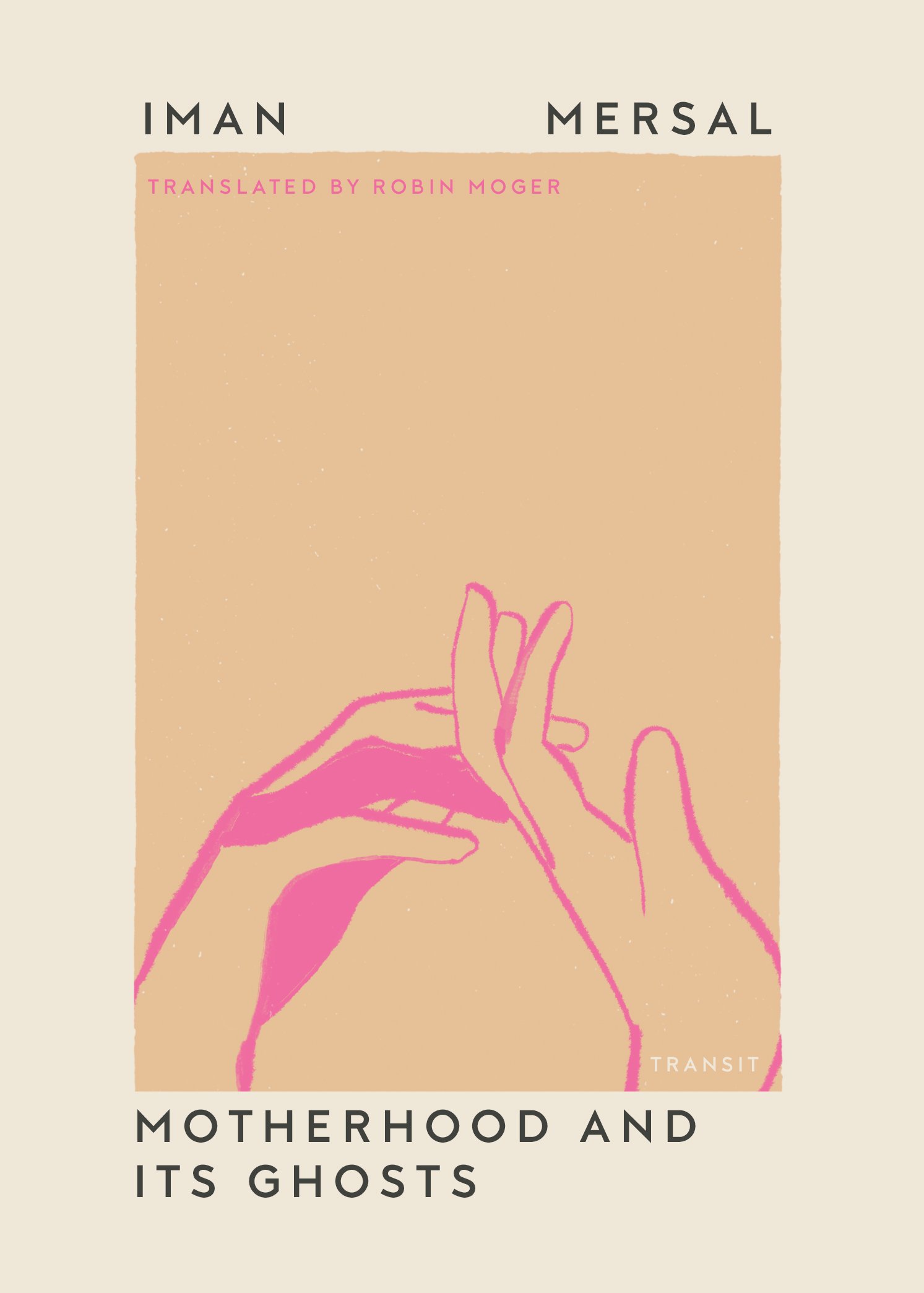Motherhood and Its Ghosts


Motherhood and Its Ghosts
Iman Mersal
Translated from the Arabic by Robin Moger.
Iman Mersal has only one photograph of her mother, who died giving birth at age twenty-seven. But the woman portrayed in it strikes her as very unlike the one in her fleeting childhood memories, in mood, expression, dress.
When Mersal has a child of her own decades later, she begins to wonder whether it’s possible to depict a mother with any degree of fidelity. How to represent—in photography, dream, memory, or writing—an individual whose complex inner landscape has suddenly come under threat of looming archetypes? What is hidden in traditional representations of motherhood? What lies outside the narrative in which motherhood “means giving, the melding of two distinct selves, a love unlimited and unconditional”?
Sifting through the archives of motherhood, including journal entries, photographs, and the writings that have informed her own poetic practice, Mersal privileges questions over answers, drifting over arriving, allowing a form of motherhood to exist in these pages unbounded.
Motherhood and Its Ghosts is part of the Undelivered Lectures series from Transit Books.
Praise for Motherhood and its ghosts
“Gracefully written...[Mersal] creates unexpected meaning from interwoven timelines.”—Kirkus Reviews
“Motherhood and Its Ghosts offers a vision of motherhood that emerges both with and against familiar archetypes of motherhood, suggesting an altogether different dissonance between represented motherhood—in photographs, literature, and cultural memory—and the lived experience of maternal ambivalence, love, and loss."—Clancey D’Isa, Chicago Review of Books
“A searching, intimate, and captivating volume that deserves a place among the best writing and thinking about motherhood.”—Pierce Alquist, Book Riot
Praise for Traces of Enayat
"A subtle and universal exploration of identity."—Aida Alami, The New York Times
"Literary obsession and detective work merge in this biography of Enayat al-Zayyat… whose remnants [Mersal] embroiders with photographs, speculation, and personal reflections, leaving behind a seductive mystery."—The New Yorker
"This is what Mersal does: she exposes herself in a way that leads you to bare something of yourself in turn; you look up from the page and lock eyes with your life."—Ursula Lindsey, The Point
"The prose shines and the central literary mystery will keep readers turning pages. This beguiling volume captivates."—Publishers Weekly
"A resonant literary biography by way of fractured, obsessive sleuthing."—Kirkus Reviews
"Thorough and empathetic... Traces of Enayat frees its subject from the rote interpretation of her life through the lens of her suicide, placing her in conversation with other women who felt similarly trapped and dreamed of new horizons."—Edmée Lepercq, Los Angeles Review of Books
"A haunting biography that rescues a compelling legacy from a fragmented story of loss."—Foreword Reviews
"A slow, idiosyncratic journey through a layered, changing Cairo and through Mersal's mind."—Lily Meyer, NPR
"A consuming read, layered and complex as the best hybrid memoirs are, with a sadness at its heart I wasn't prepared for...Like with any life that ends much too soon, Mersal lets us look back on Enayat's with a mix of hope and loss: understanding that this was perhaps what her life was meant to be, yet still imagining how much different it could have been."—Kevin Dean, The Common
"Traces of Enayat [is] a creative nonfiction text that defies categorization, in which [Mersal] continues her investigation of the untold histories of women's mental health at the intersection of middle-class morality and cultural canon-making. The archive, its gendered composition, and its silences, are for Mersal a constant point of departure and return."—Vina A. Ramadan, BOMB
“An exploratory, investigative biography…for anyone interested in something that's like a mystery but is much more about history, literature and understanding. Truly wonderful”—Josh Cook, Porter Square Books (Cambridge, MA)
praise for iman mersal
"The first new poems I've liked for years . . . Unpredictable, savage, chaotic. There is something of Zbigniew Herbert in them, clever, abstract, musing stuff, but they are this year's model, an 'upgrade, ' as we would say, with terrifying bleakness in place of his periodic geniality."—Michael Hofmann, The Times Literary Supplement
"Mersal doesn't offer herself as a representative of her country, culture, or religion, and her feminism manifests not as a creed but as a tone, a disposition toward life and love. Her voice is so inviting, so familiar, so confiding that it's even easy to forget that these are translations: Creswell renders her as a perfect contemporary . . . To read The Threshold is to be heartened by poem after poem that exhibits the whole woman--heart and mind, candor and cunning."—Ange Mlinko, The New York Review of Books
[Mersal's poetry] is bracing, clever, and terse, but slippery too. The self is not her subject so much as an impediment that she writes around; there's deceit, disloyalty, duplicity, misdirection . . . There is an almost joyful sense of privacy in Mersal's poems: She obscures as much as she discloses."—Amir-Hussein Radjy, The Nation
"This selection, drawn from [Mersal's] first four books and nimbly translated from the Arabic, showcases the sweet, tough verve of her voice."—The New York Times Book Review
"Mersal's poems are many things--sensuous, cerebral, intimate, angry and disorientating. They provide food for thought and elicit laughter in the dark . . . [The Threshold is] a perfect entry point for readers new to her work."—Malcolm Forbes, The National
"Ravishing . . . Mersal's poems read like short stories; they are spare but resonant, full of charming misfits, and governed by chance."—Kaelen Wilson-Goldie, 4Columns
Product Info
First Published: May 13, 2025
Nonfiction
Paperback | 5 x 7 | 158 Pages
Rights: NA
9798893380170
